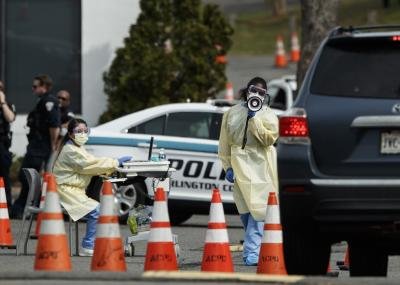New York, April 9 (IANS) Countries that have conducted widespread testing have done fairly well in the fight against COVID-19 and those struggling to contain the spread of the pandemic may do well to follow their lead, according to epidemiologist Jennifer Nuzzo, a Senior Scholar at the Johns Hopkins Center for Health Security in the US.
Rather than hoping that a vaccine will soon be available and everything will suddenly be alright, nations affected by the pandemic should continue to test widely, identify those with the disease and isolate them, while also asking the general population to continue to practice social distancing until effective treatments are available, she said in an interview to JSTOR Daily, an online publication that contextualises current events with scholarship.
In September 2019, less than three months before the outbreak of COVID-19 in China’s Wuhan area became public, Nuzzo and her colleagues published a WHO/World Bank-commissioned report titled “Preparedness for a High-Impact Respiratory Pathogen Pandemic.”
The report identified priority actions for countries, international organisations, and other stakeholders to pursue that would mitigate the public health, economic, social, and political consequences of the emergence of a high-impact respiratory pathogen – months before the world got introduced to COVID-19.
In her interview to JSTOR Daily, published this week, Nuzzo said that the US squandered the opportunity to prepare for the pandemic. The country got about three months, according to her, to prepare for the disease.
“Even if a vaccine for the disease becomes available in 12-18 months, as many people have assumed, it may not become a realistic solution for years as demands for the vaccine could exceed supplies,” she said.
The global nonel coronavirus tracker service by Johns Hopkins team is being widely used and praised for its authenticity and quick updates on caseloads, deaths and recovered patients.
According to the tracker service, there were nearly 15 million positive cases, over 89,000 deaths and 3.3 lakh recovered patients from the respiratory disease globally as of Thursday evening.
The top epidemiologist warned that diseases of animal-origin affecting humans are increasingly becoming common.
Giving examples of how countries like South Korea and Singapore responded to the pandemic, she said that all countries fighting the pandemic need to do tests widely and restrictions should be eased gradually when the situation improves.
–IANS
gb/na
